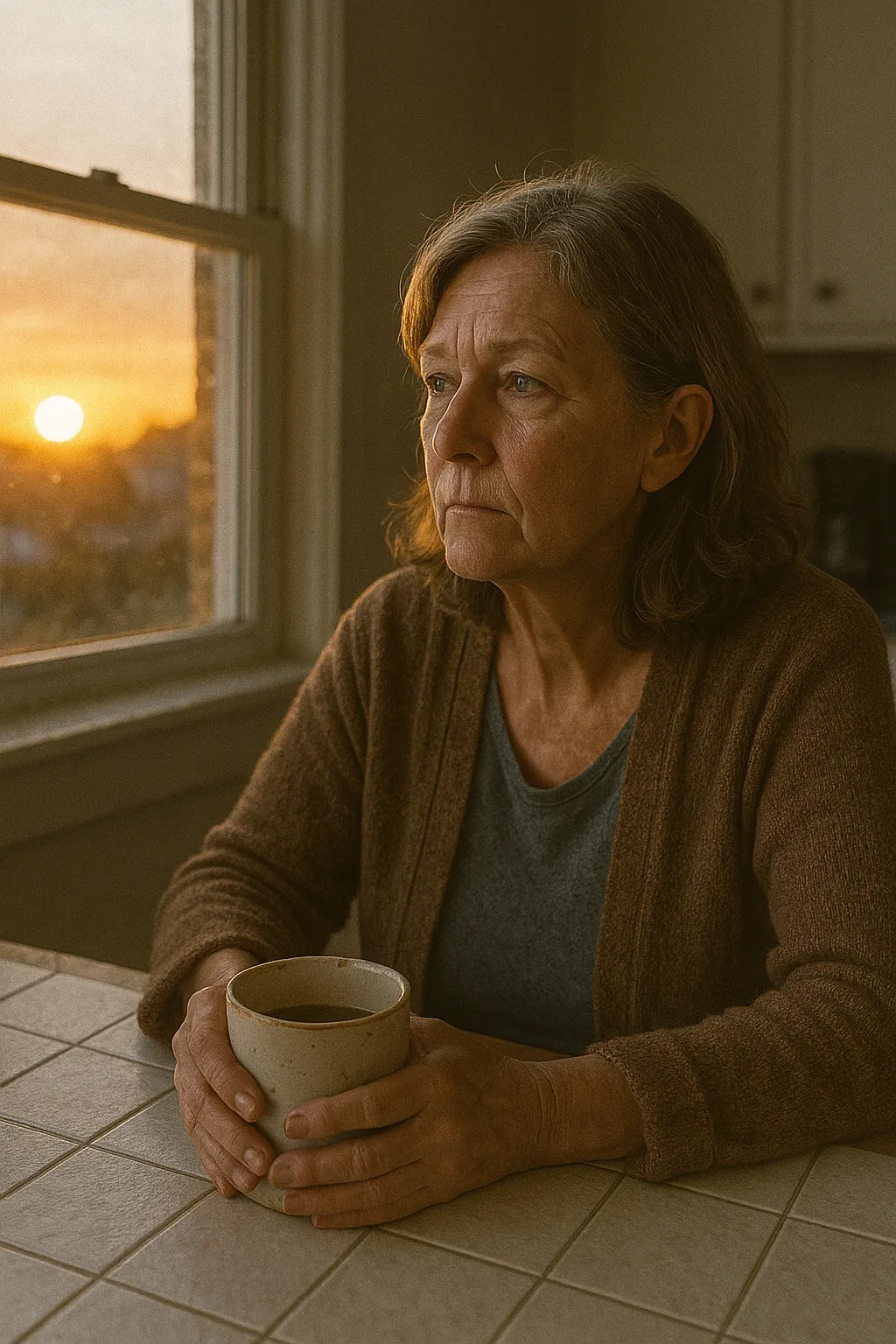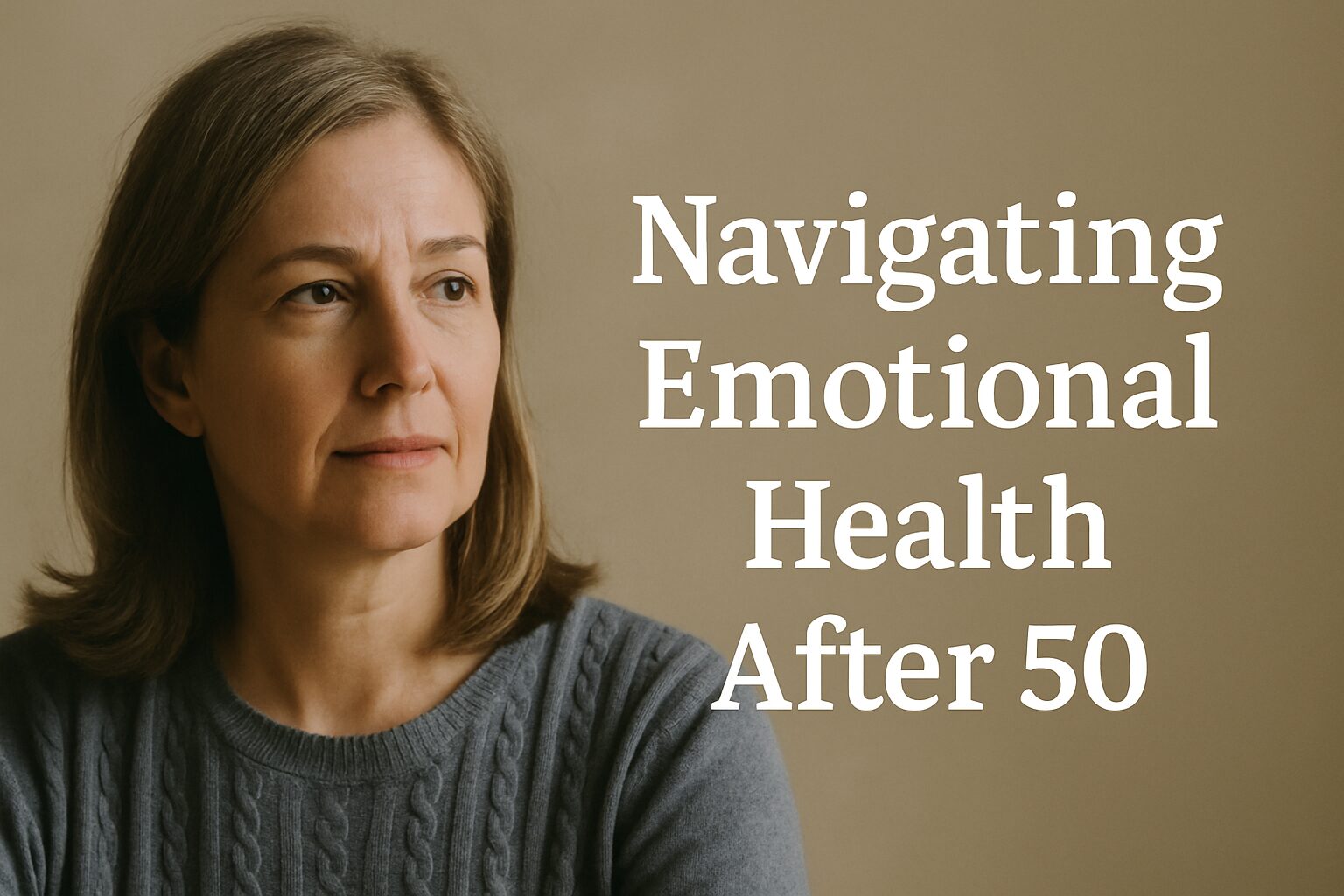Navigating Emotional Health After 50
I sat at my kitchen table, the chipped mug warm in my hands, as the sun rose just over the horizon, pouring soft light across the cold tiles. It felt like a silent acknowledgment of all the mornings I had spent alone, wrapped in my thoughts, wondering where life had led me. At 52, I found myself navigating not just my own emotional health, but the emotional landscape of friends and family who seemed just as adrift. The quiet ache in my chest had become familiar, like background noise I had learned to live with. But something in that sunrise — that soft, insistent light — made me want more.

Realizing I’m Not Alone
One quiet morning, the faint smell of coffee swirling in the air, I pulled out my old journal. Its pages were frayed, filled with forgotten hopes and dreams. I read my own words with a strange tenderness, seeing the younger version of me who had once believed life would be simpler by now. Later that week, I met Sarah, my friend of over a decade, for coffee. Her eyes looked tired, but her smile was familiar. “I sometimes feel like a ghost in my own life,” she confessed, staring down at her untouched latte.
That moment shifted something inside me. Emotional health is often masked by a smile — but we were both unmasking. We talked for hours, not just about sadness but about numbness, the way small joys seemed to fade too quickly. “I miss being needed,” I told her. She nodded. And there, in that honest space, I felt the stirrings of relief. We were not broken — we were unheard. And finally, we were speaking.
Finding Healing in Community
As the summer turned to fall, I took a leap and joined a local women’s circle. At first, I hesitated at the door, clutching my coat like a shield. But inside, there were women like me — quiet, kind, open-eyed. One woman, Margaret, shared about losing her husband after forty years. “It’s as though he took a part of me with him,” she said, her voice cracking like thin porcelain.
Her pain echoed my own in unexpected ways. I didn’t know what to say, so I just sat beside her, hand on her knee. No one tried to fix anything. We simply listened. That night, I realized something powerful: emotional health isn’t about pretending you’re okay. It’s about being witnessed in your not-okay-ness. The silence in that room was a kind of medicine. And for the first time in a long time, I didn’t feel invisible.
The group became a place I craved — not for answers, but for truth. We cried, we laughed, we sat in silence. And slowly, the weight in my chest began to lift.
Reclaiming Joy in Small Moments
With winter approaching, I began hosting dinners — nothing fancy, just soup and bread and real conversation. The same chipped mugs, now full of warm cider, passed from hand to hand. Over shared meals and mismatched candles, we rediscovered parts of ourselves. Laughter returned like an old friend who had been away too long.
I found myself looking forward to small rituals again — baking scones, lighting a fire, flipping through old photo albums without crying. The faded letters I had once hidden away became something else entirely: evidence that I had lived, loved, lost. Emotional health was no longer a puzzle to solve — it was a rhythm to lean into.
Even in quiet loneliness, I now felt accompanied. And when I sat alone, it wasn’t emptiness — it was space. That, I realized, was healing too.
Somewhere between grief and laughter, I learned that vulnerability isn’t weakness — it’s the first step to true connection. It’s not about fixing, it’s about being real, even when real is messy.
In this season of my life, I encourage every woman reading this: reach out. Call your sister, invite a neighbor, write the letter you’ve been putting off. Emotional health grows in shared stories — the kind whispered over tea, the kind that begin with, “I’ve been feeling…” Share this with someone who needs it.
